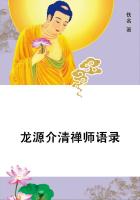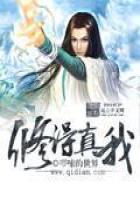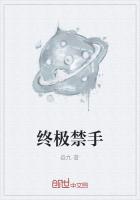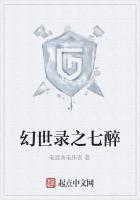"Possess," said he, "the fruit of all thy pains, And measure, at thy length, our Latian plains.
Thus are my foes rewarded by my hand;
Thus may they build their town, and thus enjoy the land!"Then Dares, Butes, Sybaris he slew, Whom o'er his neck his flound'ring courser threw.
As when loud Boreas, with his blust'ring train, Stoops from above, incumbent on the main;Where'er he flies, he drives the rack before, And rolls the billows on th' Aegaean shore:
So, where resistless Turnus takes his course, The scatter'd squadrons bend before his force;His crest of horses' hair is blown behind By adverse air, and rustles in the wind.
This haughty Phegeus saw with high disdain, And, as the chariot roll'd along the plain, Light from the ground he leapt, and seiz'd the rein.
Thus hung in air, he still retain'd his hold, The coursers frighted, and their course controll'd.
The lance of Turnus reach'd him as he hung, And pierc'd his plated arms, but pass'd along, And only raz'd the skin.He turn'd, and held Against his threat'ning foe his ample shield;Then call'd for aid: but, while he cried in vain, The chariot bore him backward on the plain.
He lies revers'd; the victor king descends, And strikes so justly where his helmet ends, He lops the head.The Latian fields are drunk With streams that issue from the bleeding trunk.
While he triumphs, and while the Trojans yield, The wounded prince is forc'd to leave the field:
Strong Mnestheus, and Achates often tried, And young Ascanius, weeping by his side, Conduct him to his tent.Scarce can he rear His limbs from earth, supported on his spear.
Resolv'd in mind, regardless of the smart, He tugs with both his hands, and breaks the dart.
The steel remains.No readier way he found To draw the weapon, than t' inlarge the wound.
Eager of fight, impatient of delay, He begs; and his unwilling friends obey.
Iapis was at hand to prove his art, Whose blooming youth so fir'd Apollo's heart, That, for his love, he proffer'd to bestow His tuneful harp and his unerring bow.
The pious youth, more studious how to save His aged sire, now sinking to the grave, Preferr'd the pow'r of plants, and silent praise Of healing arts, before Phoebean bays.
Propp'd on his lance the pensive hero stood, And heard and saw, unmov'd, the mourning crowd.
The fam'd physician tucks his robes around With ready hands, and hastens to the wound.
With gentle touches he performs his part, This way and that, soliciting the dart, And exercises all his heav'nly art.
All soft'ning simples, known of sov'reign use, He presses out, and pours their noble juice.
These first infus'd, to lenify the pain, He tugs with pincers, but he tugs in vain.
Then to the patron of his art he pray'd:
The patron of his art refus'd his aid.
Meantime the war approaches to the tents;Th' alarm grows hotter, and the noise augments:
The driving dust proclaims the danger near;And first their friends, and then their foes appear:
Their friends retreat; their foes pursue the rear.
The camp is fill'd with terror and affright:
The hissing shafts within the trench alight;An undistinguish'd noise ascends the sky, The shouts those who kill, and groans of those who die.
But now the goddess mother, mov'd with grief, And pierc'd with pity, hastens her relief.
A branch of healing dittany she brought, Which in the Cretan fields with care she sought:
Rough is the stern, which woolly leafs surround;The leafs with flow'rs, the flow'rs with purple crown'd, Well known to wounded goats; a sure relief To draw the pointed steel, and ease the grief.
This Venus brings, in clouds involv'd, and brews Th' extracted liquor with ambrosian dews, And odorous panacee.Unseen she stands, Temp'ring the mixture with her heav'nly hands, And pours it in a bowl, already crown'd With juice of med'c'nal herbs prepar'd to bathe the wound.
The leech, unknowing of superior art Which aids the cure, with this foments the part;And in a moment ceas'd the raging smart.
Stanch'd is the blood, and in the bottom stands:
The steel, but scarcely touch'd with tender hands, Moves up, and follows of its own accord, And health and vigor are at once restor'd.
Iapis first perceiv'd the closing wound, And first the footsteps of a god he found.
"Arms! arms!" he cries; "the sword and shield prepare, And send the willing chief, renew'd, to war.
This is no mortal work, no cure of mine, Nor art's effect, but done by hands divine.
Some god our general to the battle sends;Some god preserves his life for greater ends."The hero arms in haste; his hands infold His thighs with cuishes of refulgent gold:
Inflam'd to fight, and rushing to the field, That hand sustaining the celestial shield, This gripes the lance, and with such vigor shakes, That to the rest the beamy weapon quakes.
Then with a close embrace he strain'd his son, And, kissing thro' his helmet, thus begun:
"My son, from my example learn the war, In camps to suffer, and in fields to dare;But happier chance than mine attend thy care!
This day my hand thy tender age shall shield, And crown with honors of the conquer'd field:
Thou, when thy riper years shall send thee forth To toils of war, be mindful of my worth;Assert thy birthright, and in arms be known, For Hector's nephew, and Aeneas' son."He said; and, striding, issued on the plain.
Anteus and Mnestheus, and a num'rous train, Attend his steps; the rest their weapons take, And, crowding to the field, the camp forsake.
A cloud of blinding dust is rais'd around, Labors beneath their feet the trembling ground.
Now Turnus, posted on a hill, from far Beheld the progress of the moving war:
With him the Latins view'd the cover'd plains, And the chill blood ran backward in their veins.
Juturna saw th' advancing troops appear, And heard the hostile sound, and fled for fear.
Aeneas leads; and draws a sweeping train, Clos'd in their ranks, and pouring on the plain.

